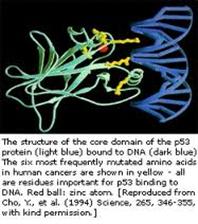I attended a lecture by Professor Hani Gabra at the Ovarian Cancer Action Research Centre in East Acton. I took notes for Gill (Midwife Gill) who wasn't able to attend but thought it would be helpful to put a résumé of the notes I took as I felt his message was full of hope.
Professor Gabra's research team is the largest in Europe. They work in eight centres across the UK including Glasgow, Edinburgh, Newcastle, Manchester, Cambridge, London, and Hammersmith. Their aim is to gain a better understanding of the molecular basis of Ovarian Cancer - why and how it happens, and then to improve options to provide more effective and targeted treatment.
He told us that in 3 - 4 years' time new treatments will become available. Trials with Avastin had turned out well for 2nd and 3rd line treatment. Dose-dense Taxol works in a similar way to Avastin and reduces the side-effects of joint pain and neuropathy associated with this chemotherapy.
He advised us to look up the Watson and Crick research papers.
Professor Gabri told us that ovarian cancer doesn't start in the ovaries but most starts in the Fallopian Tube. He posed the problem as to why women become platinum resistant. He believes that platinum resistant cancer cells are always there when we're first treated. When the cancer comes back the cells don't come from the primary cancer. Cancer resistant cells were present before the initial diagnosis and they are completely different from the primary cancer. He believes that platinum-based treatments are the most effective we have and if the medical experts could avoid women becoming platinum resistant they could be kept alive. I questioned whether this applied to Refractory Disease, which is where women are platinum resistant from the outset, and he said this is a completely different problem and one his research does not investigate.
The gene P53 (shown in the image above) is linked to all Ovarian Cancer mutation and its mutated form of protein is present in all high grade Ovarian Cancer. A company in Norway has produced a drug to tackle P53 and they wish to extend trials to the UK and other countries in order to get a wide sample group. It will be trialled on a sample of 15 women by Professor Gabra's team and the intention is to combine the drug with carbo-platin and gemcitibine. After the initial trial it will be extended to 2,000 patients. Anti-P53 therapy is a daily infusion. The research is so new at this stage that it has not yet been published. However, five patients with Leukaemia have been successfully treated with the drug.
Professor Gabri went on to explain other areas of research. Work continues on immunotherapy. This is research to improve the functioning of the immune system. In cancer some proteins are turned on and if a treatment could be discovered to tackle the malfunctioning protein the disease could be wiped out. This is leading-edge research which is the domaine of astrophysicists and it would take a year to 18 months to set up a trial.
There are laboratory trials with a protein called OPCML which is a cancer suppressor. In laboratory conditions artificially-created OPCML inserted into active cancer cells stopped the progression of tumours. This is currently being tested on mice which has been effective. There is hope that the trials will be extended to humans in the next few years. OPCML is absent in nearly 90% of Ovarian Cancer cells.
You can find out more about Professor Hani Gabra's research on the website Ovarian Cancer Action and you can also sign up to be a 'Voice'. It's an advocacy programme where you may be called upon to give a talk about Ovarian Cancer in your local area, or collect a cheque on behalf of Ovarian Cancer Research. I received the invitation to the lecture via this charity. When I do some volunteering for them I always make sure to take my BEAT cards and to mention the wonderful work that Ovacome do for us.




